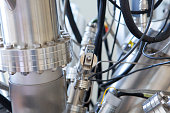Unlocking Multi-Stage Filtration With Plate Presses

As emerging businesses continue to evolve and put more priority on efficiency and sustainability, the need for sophisticated liquid-solid separation systems has become increasingly critical. One such technology that has been gaining popularity for its capabilities is multi-stage filtration using filter presses. In this paper, we will delve into the fundamentals behind this process and explore its benefits.
The Basics of Filter Presses
-------------------------
A filter press is a type of press-based clarification system used to remove liquids and solids in different industries. The simple principle of a filter press is that it applies force to a plate press, causing liquids to pass through while keeping solids. This results in a sludge cake on the surface of the filters, which can be disposed and recycled for energy production.
How Multi-Stage Filtration Works
------------------------------
Multi-stage filtration involves the use of several filter presses in a cascading process. The first filter press is designed to remove larger particles and contaminants from the liquid-solid mixture, while the second filter press, if used, provides a higher level of filtration. By dividing the particles at several stages, multi-stage filtration is able to reach greater levels of clarity and purity in the finished product.
Benefits of Filter Presses
---------------------------
Using filter presses offers several special benefits for industries requiring high levels of efficiency. Some of these benefits include:
- Minimized Energy Requirements: Because filter presses operate under pressurized conditions, they require considerably less energy to result in the same level of dewatering as centrifuges.
- Rapid Process Time: By using multi-stage filtration, filter presses can produce high-quality products with much less waste and reduced environmental impact.
- Customization Options: Filter presses can be used in a diverse of uses and are particularly suited to operations requiring fine-tuned settings over the dewatering process.
------------------------------------------
Filter presses have a wide range of applications in diverse industries, including chemical processing, construction, and more. They are particularly well-suited to operations involving high-viscosity fluids.
In the biotech industry, filter presses are used to yield high-quality products with precise settings. In the mining industry, they play a critical role in the treatment of mine tailings, allowing for the safe recovery of materials that were once hazardous.
Innovation and Future Developments
----------------------------------
As industries continue to pressure equipment manufacturers to yield higher-quality products at minimal costs, innovations in filter press technology are continually surfacing. Some recent improvements include fresh approaches for building filter plates, softer cleaning processes, and increased focus on sustainability.
Designed by sketchbooks.co.kr / sketchbook5 board skin
Sketchbook5, 스케치북5
Sketchbook5, 스케치북5
Sketchbook5, 스케치북5
Sketchbook5, 스케치북5